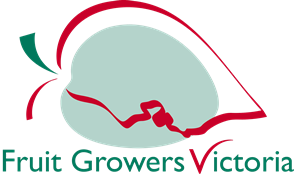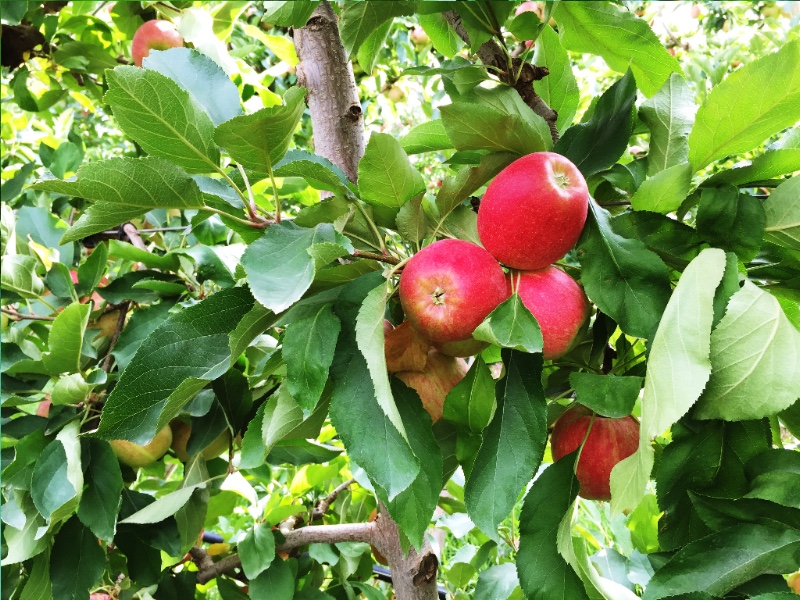
A NEW APPROACH TO NUTRITION
"We always knew soil health was important. Over the years my father tried many things and since taking over the property I have too," says Alex. "Yet despite our efforts we kept having ongoing compaction problems and just weren't getting the gains we knew possible. That's when I decided to talk with Shane Fitzgerald, after hearing about their specialist agronomy approach to soil balancing at Total Grower Services.”
“He made significant changes to the nutrition program," says Alex, "and Shane's attention to detail in the fertiliser program was invaluable.”
"The first trials were on sections of apples, pears and peaches. We also grow plums and cherries, which went on to get applications in subsequent years."
“We had one block of peaches that was dying and we were ready to abandon it. However Shane’s knowledge on micronutrient balancing turned it around within the season. These trees are now still producing good crops three years later.”
WHOLE SYSTEM GAINS
"It's four years on and the whole orchard is now under the Total Grower Services Soil health system. Every agronomic factor has been positively impacted." says Alex. "I can’t think of anything that hasn’t. There have been gains in better size and quality through to improved pest management."
IMPROVED WATER INFILTRATION
“One of the first changes we noticed was improved water infiltration. Particularly in the apple block, which had compaction issues.
"Some sections went from being so compacted where even weeds wouldn't grow, to now suddenly being soil we can sink a shovel in.” Alex explains, “The water used to run off and you could see moss on the tree line. There was a lack of infiltration from the compaction. As the soil structure changed, we noticed the run off stopped. The water was not only infiltrating, the soil was holding onto it better too.”
CONSISTENCY ACROSS SECTIONS
Consistency across sections is important in orchards and variation can kill profitability. "If 10% of the trees are not healthy your profit is quickly affected," says Alex.
“Overall the standard of tree health has improved across the whole orchard. The poorer sections have lifted and the healthy sections have got healthier. We are getting the consistency."
YIELD INCREASES
Gala apples can be difficult to grow in the Goulburn Valley with the harsher conditions of hotter and dryer weather, combined with a shorter period to get to market. These factors make the yield achievements significant for the region.
"Previously our average on gala yield was 40 tonnes per hectare. This year it was 80 tonnes from the soil health improvements." “In our new plantings of Pink Ladies we aimed at 80 tonne, yet just a few years into the system we are getting over 100 tonne."
IMPROVED LEAF SIZE
“In the apples we started to see increases in the leaf size and improved carbohydrate production. After three years we were seeing leaves we had never seen before."
"This improved leaf size showed up in the cherries too." says Alex. "We started two years behind the apples, but the improvements are following a similar pattern in the cherries as in apples. Better health. Better size. Better quality.”
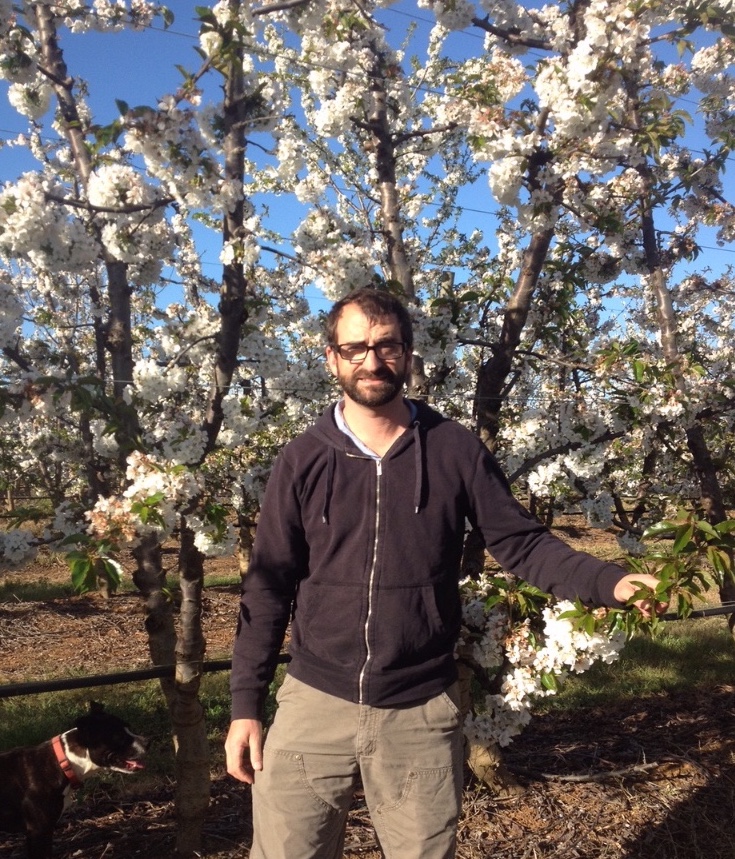
INCREASE IN WORMS AND BENFICIALS
“The gains in the gala apples were already visible in the first year, with whole system benefits becoming evident. I started seeing visual changes everywhere, from an increase in worms to beneficial insects."
“Every agronomic factor has been positively impacted." says Alex. "I can’t think of anything that hasn’t. There have been gains from better size and quality right through to improved pest management."
MEASURING THE DETAILS
Alex is thorough in his analysis and approach.
"I could see visible changes within the first year," says Alex, "but was keen to measure the progress in other ways too,"
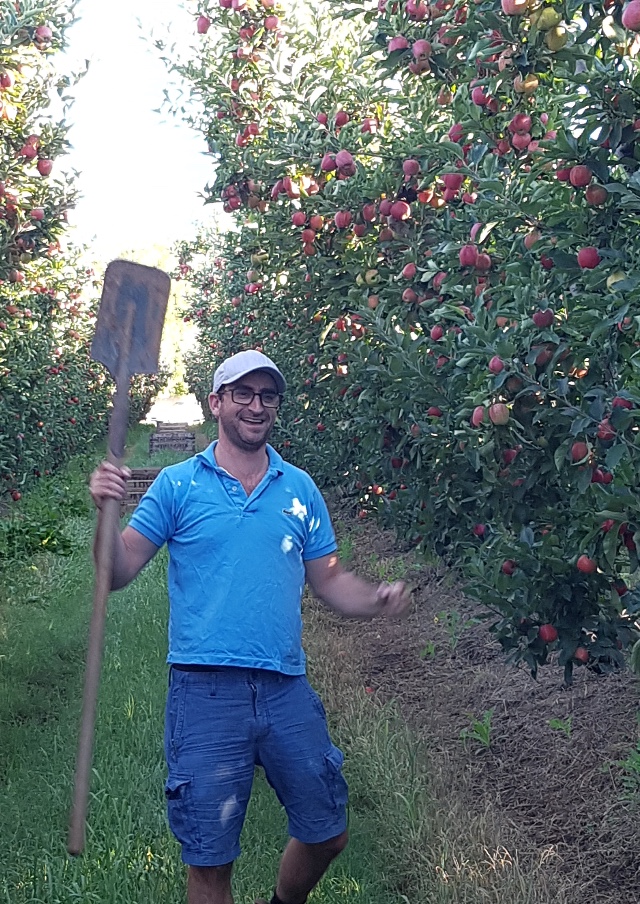
“In the apples I started tracking the leaf analysis and the data backed up the improvements." say Alex. "I worked out we had 18 years of P locked up in the soil, given this soil has been farmed here for over the 125 years.
With the inclusion of Petrik Digestor in the program, I finally had a means of accessing the locked up phosphorus. Once we saw what was possible, our whole approach to P and N has changed on this program."
"By the third year on the apples, we decided not to add any P or N. We knew we had Digestor in there that could access these nutrients and the soils were improving."
"As you can imagine, we did lots of leaf analysis to reassure ourselves as the improvements continued. And despite us not adding any P or N, the levels on soil tests continued to show that we had a plentiful supply," says Alex.
"The reduction in nitrogen application, due to increased nitrogen cycling and fixation mechanism from the product Digestor, has helped us reduce the mite problems too” explains Alex.
When the soil and plant system becomes biologically healthy, the plants start to effectively manage their own nutrient supply demands.
Shane Fitzgerald explains. “All this is possible when you have soil biology working for you. Everything works in an integrated way."
"The biology gives a natural nitrogen boost which allows us to keep the applied levels down and this in turn helps manage the pests."
Alex says "In the peaches and cherries, where higher nitrogen levels are needed, we added some, but still significantly reduced amounts. Peaches can use up to 60 – 100 kilo of N applied per year, yet in the second year, we got it down to less than 20 kilos (16-18)."
"What is incredible," highlights Alex, "is that I am getting balanced nutrition even though I am not adding the levels of P or N that I previously had. When this started to happen, I knew the health of the whole system had changed."
"We are becoming better growers," says Alex. “We use less weed kill, less synthetic fertiliser and less water and yet we are producing better produce. It's awesome."
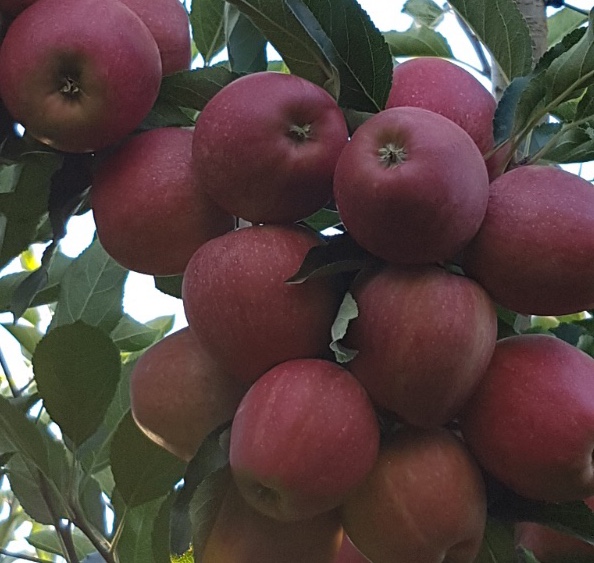
WATER INFILTRATION SIGNIFICANT
“The water run off was reduced dramatically, particularly in the sandy loan soil," says Alex. "And then in the clay soils we saw the change a year later. We started to see water going in and water holding that had not happened previously. The trees were much less stressed as the water stayed in where we wanted it."
"Overall, soil moisture management became a whole lot easier. In fact I did some calculations of the mega litres of water I was using a few years prior and the comparison showed a distinct cost savings. Also by us not having to apply as much water meant we didn't spur on disease."
"I've found that by improving the soil structure the soil ability to manage its own moisture has improved. If I put too much water on the soil now it can better cope with it. Even saturated soil can cope." Alex says, "It’s great, as I am no longer panicking about disease."
Article by: Total Grower Services, 1800 229 994, www.totalgrower.com.au
